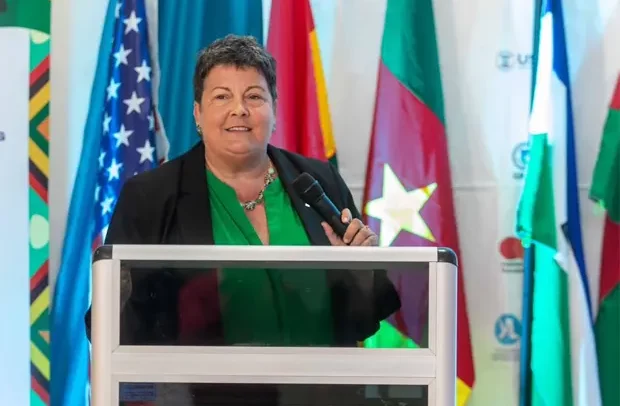
By Kizito CUDJOE
Ghana could spend more than US$1billion on liquid fuel to keep its thermal power plants running in 2025, Minister for Energy and Green Transition John Jinapor has said as rising electricity demand is expected to grow by 300 megawatts each year.
He described the range of fuel products to include diesel, light crude oil and heavy fuel oil (HFO).
This development, which puts fresh pressure on the country’s energy infrastructure, according to the minister is unsustainable – stressing an urgent need for a new gas facility to ease financial and operational strain on the sector.
Mr. Jinapor, who was speaking at the inauguration of two committees – Technical and Steering – to lead construction of the second national gas processing plant (GPP2) in Accra, bemoaned that “liquid fuel currently is not part of the tariff structure”.
As part of efforts to address the challenge, construction of GPP2 has commenced. According to the minister, this project is intended to provide a more cost-effective alternative to liquid fuel for electricity generation.
“Currently, we have a gas deficit of about 100 million standard cubic feet (MMscf). So, we are compelled to buy very expensive liquid fuel to fill that gap. It is in light of this that government has decided to build GPP2,” the minister explained.
With this, it is expected that the country could save up to US$500million annually. This implies that the savings from using gas as an alternative to liquid fuel for power generation yearly can pay for the country’s second gas plant.
The construction of GPP2 is therefore deemed a strategic initiative in expanding Ghana’s gas infrastructure to meet growing domestic needs while reducing annual natural gas losses.
Mr. Jinapor, for instance, noted that one of the key factors contributing to the country’s challenges is that independent power producers (IPPs) are continually pursuing government for payment of owed funds.
GPP2 among others will hopfully lead to increased gas consumption, availability of Liquefied Natural Gas (LNG) and Liquefied Petroleum Gas (LPG) as well as employment creation, both direct and indirect.
The Minister for Finance, Cassiel Ato Forson, who will chair the Steering Committee, also speaking at the ceremony recognised the importance of constructing the gas processing facility – noting that without the Atuabo Gas Processing Plant, the country would have faced numerous challenges.
He lamented the lack of investment in gas infrastructure and increasing gas deficit which would have otherwise helped in power generation.
Dr. Forson argued that the gas shortfall, among others, leaves the country with no choice but to buy liquid fuel to power thermal plants for power generation.
He asserted that two years of savings from the use of gas as an alternative to liquid fuel will be enough to pay for the gas facility, adding: “I’m surprised to hear that the previous administration, after so many years of talk, were unable to begin the process of acquiring a second gas processing plant”.
The finance minister urged the Technical Committee to expedite action on their work. “We need to have a second gas processing plant as soon as possible and I believe that the Committee will be able to finish their work in time for us to commission the contractor.”
It will be recalled that the Africa Centre for Energy Policy (ACEP) in its ‘2025 Budget Insights’ questioned not mentioning GPP2 and its financing arrangements in the budget – especially after the Minister for Energy and Green Transition announced Cabinet approval for the infrastructure project.
According to ACEP, the additional processing facility will enable the country to optimise its domestic natural gas resources by commercialising flared gas.
“The Ghana Upstream Petroleum Chamber estimates that Ghana lost about US$290million to the value chain from flared gas in 2023. The past attempt to develop a second train had a price tag of about US$800million to process an additional 150MMscf,” ACEP said.
“This,” the think-tank asserted, “is more than double the benchmark cost for such a processing plant. Therefore, future attempts require a more transparent and competitive award process to ensure the country is getting value-for-money from the project.”
ACEP further stated that “such projects should fall within global benchmarks and not be double the market cost”.
The post Fuel bill to reach US$1bn in 2025 appeared first on The Business & Financial Times.
Read Full Story










Facebook
Twitter
Pinterest
Instagram
Google+
YouTube
LinkedIn
RSS